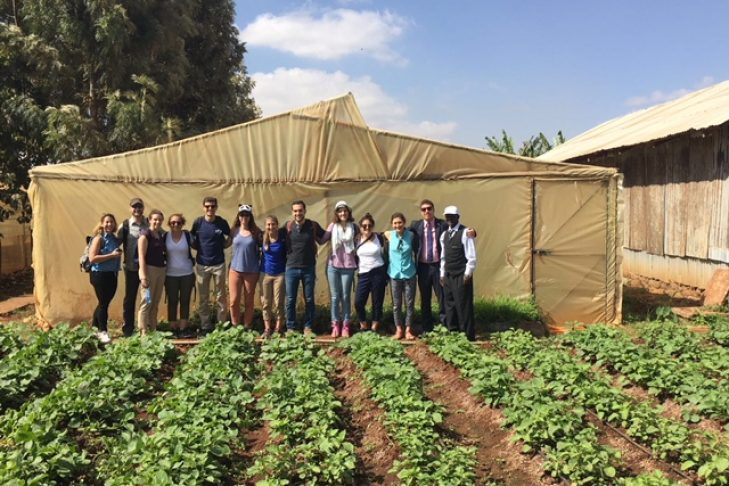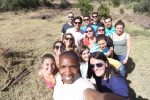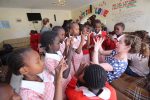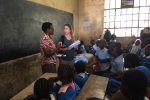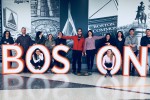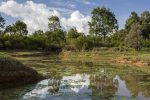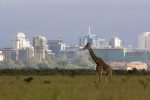Following an inspiring day in hot and humid Kisumu, the Israeli ambassador to Kenya, Noah Gal Gendler, graciously welcomed us for dinner at his official residence. Also present were representatives of both Israel and Kenya’s water authorities, and Kenya’s education ministry. Having visited a wide variety of schools as well as witnessed the dearth of clean water in Kenya firsthand, to engage with and learn from these leaders alongside the honorable ambassador provided us with macro-level perspectives on these issues.
Friday provided an opportunity to further connect the dots between Israel’s commitment to support social and economic development in the region. Specifically, we met with locals who are spreading their Israeli-transferred knowledge in their communities.
Our most memorable adventure of the day brought us to Riuru to visit Albert Kamatu, a farmer who recently returned from a month-long agricultural course in Israel, hosted by MASHAV, Israel’s international development agency. Beaming with pride, Albert explained how he was challenging old-school mindsets by introducing new technology to increase vegetable yield and improve his community.
Albert’s farm is a five-acre Kenyan Garden of Eden. As we toured the compound, we were struck by his entrepreneurial vision and powerful sense of purpose. From the rows of leafy kale, to the emerging papaya groves, the farm is a model economic enterprise. Albert and his wife, Regina, plan to introduce several innovative technologies from the MASHAV program, including drone-based crop optimization and irrigation tools, to take their business to the next level. Additionally, they are working to scale their impact by applying what Albert learned in Israel to educate neighboring farmers on similar best practices. Collectively, they hope to create a hub and spoke “Kenyan kibbutz” with more than 26 farms practicing these sustainable techniques, resulting in more robust agriculture and a healthier community.
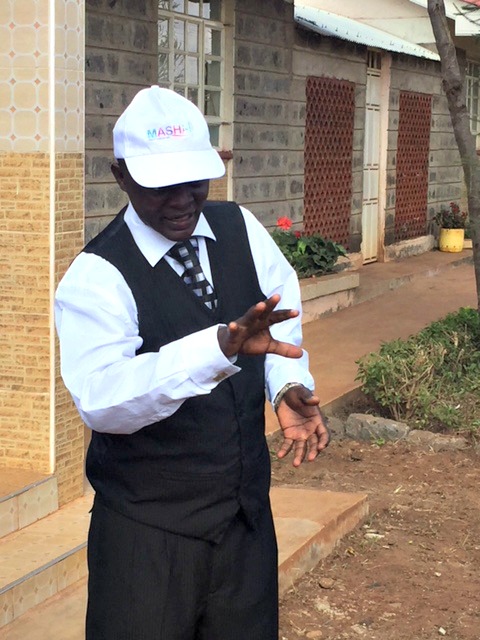
Later in the day, we met other leaders that are also using access to Israeli ideas to further realize Kenya’s potential. For example, Ronald Odianga, one of Kenavara Group’s founders, spent a year in Israel to study agriculture as part of the Jerusalem Declaration program. After being inspired by his tenure at the Arava Institute, Ronald founded Kenavara to promote farming among youth in Kenya. He said, “The Israeli people continue to be a source of inspiration [for us], as we saw what they are able to accomplish in the desert.”
While agriculture occupied most of our day, we also met with other organizations committed to social and economic development in Kenya that are affiliated with Kenyatta University. The Chandaria Business Innovation and Incubation Centre serves as a start-up accelerator to advance the ideas of recent graduates, while the Africa Centre for Transformative and Inclusive Leadership empowers social and economic progress for women in Africa.
As we prepare to share the evening with the Nairobi Hebrew Congregation, we are grateful for the people we have met this week and look forward to our last two days in Kenya. Shabbat Shalom!
Follow along:
Blog: JewishBoston.com
Instagram: #projectinspire2018
Facebook: Project Inspire: Kenya
Twitter: @CJPIsrael and @IsraelinBoston
Lauren Glaser works in the field of environmental conservation. A passionate linguist, she recently spent three months in Israel to work toward her longtime goal to learn Hebrew. While in Israel, she started to learn about the headway Israel is making in the environmental sustainability sector, both domestically and abroad.
Scott Rosen spent his early career in financial services and currently works for a healthcare services company leading strategy and corporate development. He is an active volunteer with the University of Virginia’s Brody Jewish Center at McIntire School of Commerce, Camp Avoda and, most recently, a participant in JCRC’s ReachOut! program.


